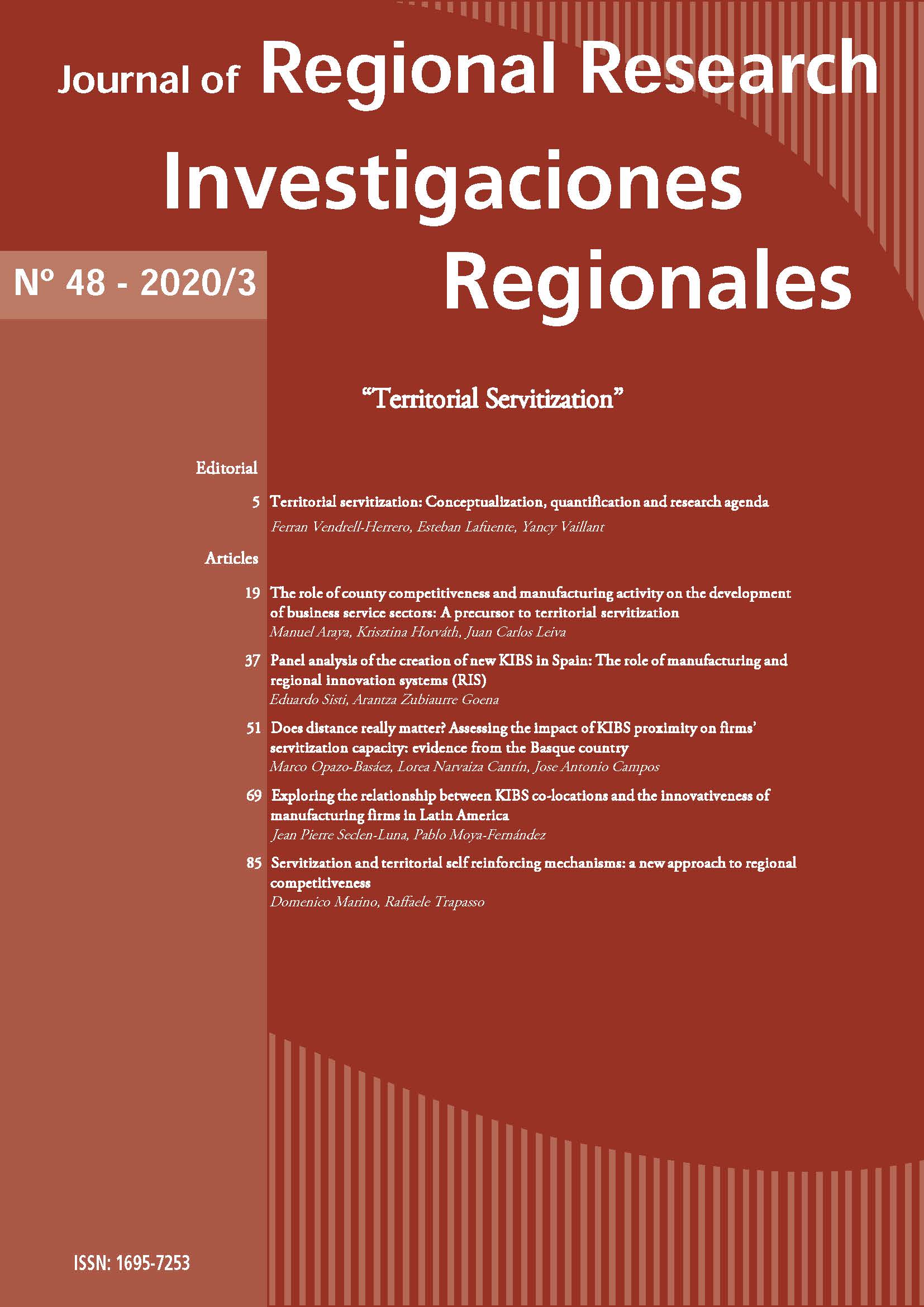Servitizacion and territorial self reinforcing mechanisms: a new approach to regional competitiveness
DOI:
https://doi.org/10.38191/iirr-jorr.20.022Palabras clave:
Servitization, Self-Reinforcing Mechanism, Regional PoliciesResumen
The present paper discusses a theoretical model to explain the link between servitization and territorial competitiveness based on the situation in Italy. A key assumption of the model is that once the link between manufacturing and KIBS is established within a TES, there is a positive feedback between the increasing productivity (competitiveness) and the link between firms and KIBS, which becomes stronger and stronger triggering a self-reinforcing dynamic. This means that every evolutionary step of the system influences the next and thus the evolution of the entire system, so generating path dependence. Such a system has a high number of asymptotic states, and the initial state (time zero), unforeseen shocks, or other kinds of fluctuations, can lead the system into any of the different domains of the asymptotic states (1). In other words, both the theoretical assumptions and the empirical model outlined in this paper demonstrate that when a functional relationship between manufacturing and services is established (servitization), economic performance is positive or very positive.
Descargas
Publicado
Número
Sección
Licencia
Aquellos autores/as que tengan publicaciones con esta revista, aceptan los términos siguientes:
En el momento de aceptar la publicación de sus artículos en Investigaciones Regionales / Journal of Regional Research, los autores acceden a utilizar la licencia Creative Commons CC BY-NC. IIRR/JRR es una revista abierta que permite a los autores retener el máximo control sobre su trabajo. Los autores aceptarán utilizar la licencia Creative Commons Attribution-NonCommercial. Esta licencia permite a cualquier persona copiar y distribuir el artículo con propósitos no comerciales, siempre y cuando se atribuya adecuadamente la atribución del trabajo a la revista y a los autores.

